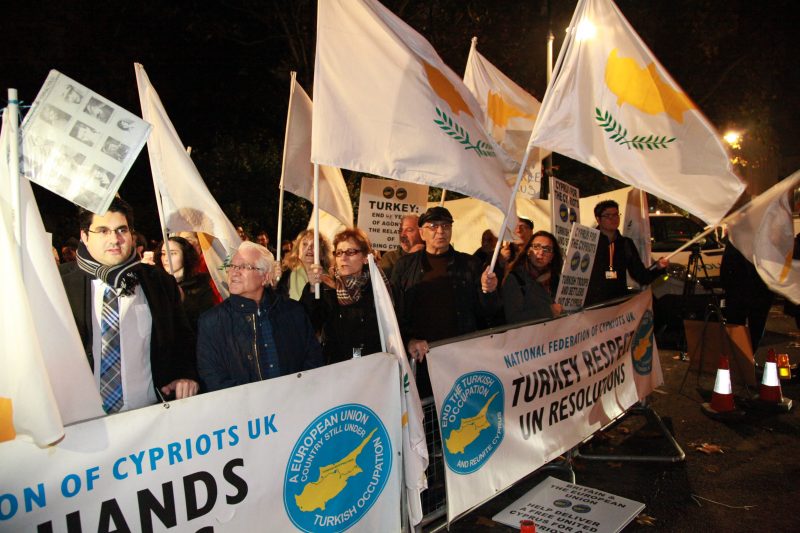Leaving behind one’s country for economic or professional reasons is very tough on the immigrant, friends, and family, causing many heartaches all around.
Since independence in 1960, Cyprus has “exported” many immigrants to other wealthy countries at the time, primarily to the UK, South Africa, Australia and to a lesser extent Canada and the US. Initially, these immigrants were uneducated people seeking a better future, but they had one goal in mind, to succeed and return home one day.
At that time, immigrants with very little knowledge of the English language got jobs at the lower end of the job scale, like dishwashers, rising to become restaurant owners, to clothing manufacturers, always aiming to provide their children with university education at any cost.
The second and third generation of the Cypriot diaspora mainly deals in business, politics, and many of them have excelled in their profession, with some becoming multi-millionaires but constantly yearning to return home to Cyprus.
But as the generations progress so the desire to return becomes less and less.
The Cypriot immigrants would congregate around the local Orthodox church, help each other, and encourage their children to go to Greek-speaking schools as an extra education to the host country.
As the generations progress, they become more disinterested in Greek-speaking schools or their Cypriot roots.
Cypriot immigrants came from the more impoverished strata of society.
Because one Cypriot brought his family and friends over, a specific pattern appeared as to their immigration destination such as in South Africa (mainly of Paphos origin), the UK (especially from the Larnaca, the mountain villages), Australia (from everywhere), as well as the US.
They then showed a particular preference for investing in Cyprus’ real estate, depending on their location of origin.
Thus South Africa immigrants prefer to invest in Paphos, Cypriots from the UK chose, Oroklini and Kiti.
These immigrants were the backbone of the real estate demand post-1974 invasion, on which others followed.
The recent celebration of the Gallipoli [Anzac] war organised in 2019 in Australia was quite moving to watch the parade headed by bagpipes and followed by ageing Cypriot boys.
This formation of Cypriot and Greek Australians, the bonding and accepting Cypriot immigrants by their host countries should be a vehicle for a reciprocal business that ends up in part, in Cyprus real estate investment.
Benefits
Cyprus has benefited and still does from major investors among those immigrant groups, with the more recent ones being the Leventis family, Dakis Ioannou (J & P Group).
In terms of politics, it will be amiss not to mention Philip Christopher (USA), Clay Constantinou, who became the US ambassador in Luxemburg and so on.
These same immigrant groups formed the basis of the more recent Cyprus real estate promotion in their host countries, who often help organise exhibitions and sending invitations to politicians in the absence of such services from Cyprus embassies.
Despite their somewhat good wealth, these returning immigrants do not appear to have invested considerable amounts in Cyprus real estate (with very few exceptions).
Apart from shopping malls, some wineries and construction, their contribution is not significant to the local economy, save their private investment.
However, although not directly related to real estate, various projects undertaken by them may have their own benefit to the broader market, upgrading the Cypriot economy and making it attractive.
Such projects include generous donations to enrich the University of Cyprus, mainly its ultra-modern library, the Leventis Gallery in Nicosia, the Municipal Building (Palataki) in Limassol.
Others, maybe not immigrants, have contributed to local hospitals, Sir Stelios of the easyJet fame, with easyHotels (regrettably, not a success in Cyprus) and noticeable bicommunal efforts.
More recently, we have seen the Brain Drain abroad, especially after the 2013 economic crisis.
This unfortunate state of affairs is more evident in Greece, where immigrants often equal the number of native Greeks with strong ties to America.
Names such as one-time US Vice President Spiro Agnew, artists Nana Mouskouri, Mikis Theodorakis, and even our Michael Kakoyiannis (of the Zorba the Greek fame) have become ambassadors for the nation.
Diaspora organisations are always there to help Cyprus and the island’s business expand abroad, and it is an asset for the Cyprus economy – we owe them many thanks.










